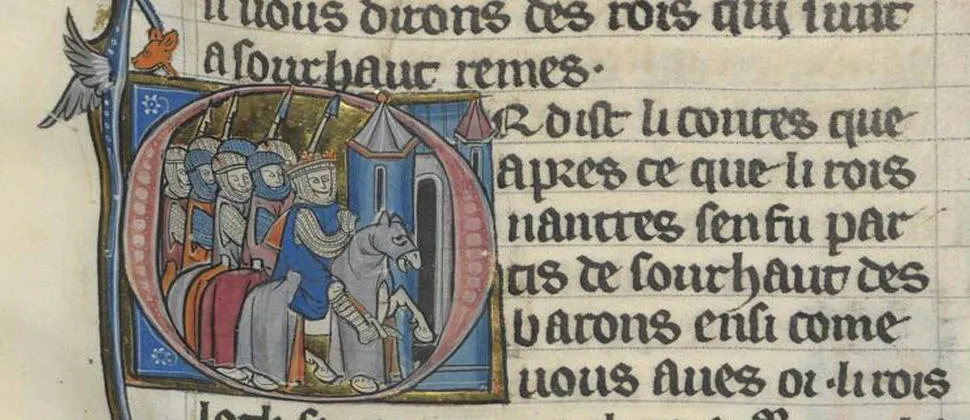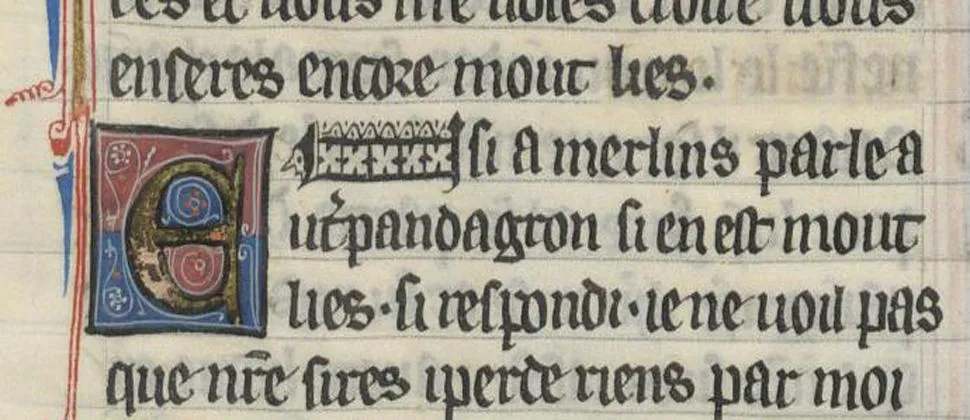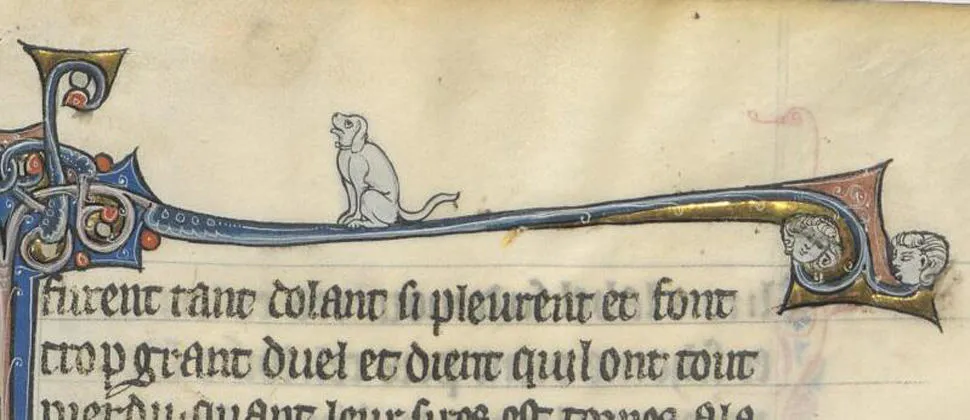Rather than seeing the French language as an expression of French national identity, we have shown that French and texts in French were vectors for cultures in contact that were not centred on France. King's research has changed curators’ and librarians’ understanding of their collections, resulting in different archival and display practices.
Professor Simon Gaunt
28 April 2022
King’s research has revealed new ways of understanding medieval French and its cultural value, not as straightforward expressions of French national identity and prestige, but rather as vectors for the use of other cultures and languages. This changes the way we think about a crucial period of French cultural development and national cultures and languages more generally.
King’s research has revealed new ways of understanding medieval French and its cultural value, not as straightforward expressions of French national identity and prestige, but rather as vectors for the use of other cultures and languages. This changes the way we think about a crucial period of French cultural development and national cultures and languages more generally.
A series of research projects led by Professor Simon Gaunt from the Department of French (now Department of Languages, Literatures and Cultures)has revised understanding of the medieval francophone world and decisively rewritten a crucial chapter in French literary and cultural history. Previous work on medieval French texts has sought to ‘fix’ them in a particular ‘correct’ linguistic form, often an anachronistic standard form of French from France. The standard question scholars have asked of medieval texts is ‘Where does it come from?’ Professor Gaunt and his team asked instead, ‘Where does this text go?’ Focusing on the reception, transformation, and networking of French texts throughout Europe, often among non-native speakers, the answers to this question definitively ‘decentres’ the history of French. This is an alternative literary history in which French texts are not circumscribed by preconceived ideas of the nation state but are read as vectors of multicultural exchange and networks of languages.
Viewing French as a language that travels through places, among peoples, and across time uncouples its evolution and transformation from that of the French nation. This helps us to understand what is historically specific about the modern idea of French as a ‘national’ language and to reflect on precisely what we mean when we talk about a ‘nation’.

The projects were funded by the Arts and Humanities Research Council (AHRC) and the European Research Council (ERC) and were led by Professor Gaunt at King’s in collaboration with colleagues in UK and European institutions.
The project Medieval Francophone Literary Culture Outside France (MFLCOF) was a collaboration with colleagues at University College London and the University of Cambridge, quantifying for the first time in detail the phenomenon of medieval French outside of France. The project highlighted the considerable linguistic and geographic movement and variation in different French manuscripts of the same text. In The Values of French Language and Literature in the European Middle Ages (TVOF) the project team investigated how French was used as a language outside France, often by non-native speakers, and examined the cultural value of French as a supralocal, transnational language. The project questioned established models of linguistic identity, the relationship between language and national identity, and the role that French itself played in the emergence of a European cultural identity during the Middle Ages.
The two projects have produced valuable databases and digitised manuscripts to enable further study of these questions. The teams' approach to their manuscript sources demanded innovative digital tools, developed by King's Digital Lab, that can map the dissemination of manuscripts and make possible sophisticated comparative analyses of the texts themselves and of their circulation.
I would never even have thought of looking at French medieval manuscripts, but it turns out they are exactly what I need to know about
Message in the Visitors’ book at The Moving Word exhibition.

Exhibitions in national libraries
The collaboration between King’s and two major research libraries, the Cambridge University Library and the British Library, has improved the accessibility of their medieval collections and raised public awareness of the movement of texts across linguistic and cultural boundaries. An exhibition in Cambridge, The Moving Word, attracted over 14,000 visitors and featured around 60 French-language manuscripts which had not previously been accessible to the public or displayed together. A further exhibition in the British Library's Treasures Gallery displayed two French manuscripts of the same text, one copied in Naples and one in the Holy Land, illustrating the geo-cultural diversity of the production of French that is at the heart of both projects. The key aim of both exhibitions was to highlight the similarities between medieval and contemporary multilingualism, the questions multilingualism raises, and the practices it develops.

Changing curatorial practice
As a result of the projects, both the Cambridge University Library and the British Library have increased the use of digital platforms to enable global audiences to access local exhibitions. Eight French-language manuscripts made in Italy and the Holy Land held by the British Library have been digitised and made available to a wider public as a direct result of the collaboration with TVOF.
Impacts on pedagogy and dictionaries
The MFLCOF and TVOF project websites have stimulated change in both undergraduate and postgraduate teaching at institutions including Bristol University, the University of Liège, the University of Neuchâtel, New York University, Paris-Sorbonne University, and the University of Zurich, which all report using their databases and platforms for teaching and training purposes. At King’s, the theoretical approach to multilingualism developed by TVOF has been incorporated into a new online MA in Global Cultures. Data from the TVOF database has been imported into open-access international etymological dictionaries such as the Dictionnaire étymologique de l’ancien français based in Heidelberg, using bespoke software developed by King’s Digital Lab and Heidelberg Academy of Sciences and Humanities.
Professor Simon Gaunt was Professor of French Language and Literature at King’s College London and formerly the Dean of the School of Arts & Humanities and died in December 2021.
Picture credit: Miniature of Noah and the ark, from London, British Library, Add. 15268, f. 7v. Reproduced with the permission of the British Library Board.
